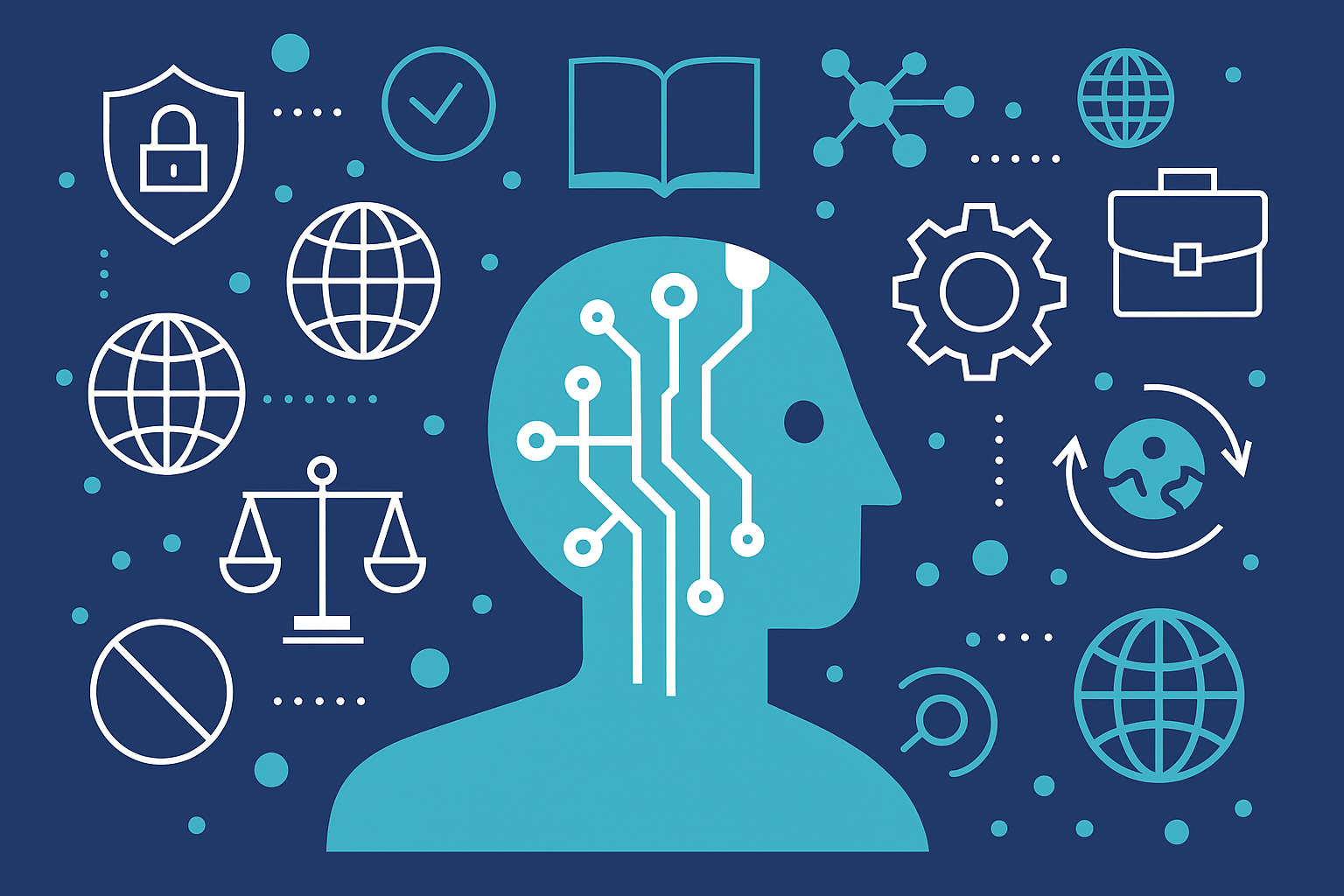📌 Introduction: Why cloud data protection is crucial today
Cloud services have become an integral part of everyday digital life. Whether for backups, file sharing, teamwork or calendars - the cloud is convenient, but often also a data protection risk. Many providers such as Google Drive, Dropbox and OneDrive store data on US servers, automatically analyze content and link it to other services. This is a problem for users who take their digital sovereignty seriously.
Data protection-friendly cloud services offer an alternative: they consistently encrypt data, store it on European servers and do not track it. In this article, you will find out how to use cloud services in a privacy-friendly way - with specific recommendations, practical settings and a look at the best providers.
🔍 What makes a cloud data protection-friendly?
A cloud service is data protection-friendly if it:
- End-to-end encryption offers - ideally on the client side
- Server locations in the EU or Switzerland has
- Open source or transparently documented is
- No data transfer to third parties allowed
- No analysis of your content carries out
- No connection to big tech companies has
In addition, the service should GDPR-compliant and give you control over your data - including deletion options, access control and a backup function.
⚠️ The problems with classic cloud services
Google Drive
- Content is analyzed automatically
- Link to Gmail, calendar, YouTube
- US server, no zero knowledge
Dropbox
- Metadata is saved
- No complete protection against access by authorities
- Partially unencrypted synchronization
Microsoft OneDrive
- Linking with Windows and Office
- Content can be used to improve services
- US Cloud Act applies to requests from authorities
These services are functionally strong - but Not suitable for sensitive or private data.
✅ Comparison of the best privacy-friendly cloud services
| Provider | Encryption | Server location | Special features | GDPR-compliant |
|---|---|---|---|---|
| Nextcloud | Client side, E2EE | Self-selectable | Self-hosted, open source | ✅ |
| Proton Drive | End-to-end | Switzerland | Zero-Knowledge, Proton Docs | ✅ |
| pCloud | Optional E2EE | Switzerland | Lifetime license, media playback | ✅ |
| luckycloud | On the client side | Germany | Scalable, suitable for teams | ✅ |
| SecureCloud | Zero-Knowledge | Germany | Company branding, Office integration | ✅ |
These providers offer you real control - without data leakage to corporations2.
🧰 Nextcloud: The private cloud for full control
Nextcloud is a Open source cloud systemwhich you can host yourself or run with a data protection-friendly provider. It offers:
- File storage, calendar, contacts, notes
- End-to-end encryption
- App ecosystem for office, chat, video
- Integration with OnlyOffice or Collabora
- Access via web, desktop, mobile
You can install Nextcloud on your own server, Raspberry Pi or with providers such as Hetzner, Webspace4All or Infomaniac operate. This gives you full control over storage location, access rights and updates.
🧠 Proton Drive: the secure cloud from Switzerland
Proton Drive comes from the team behind ProtonMail and offers:
- Zero-knowledge encryption
- Swiss data protection law
- Proton Docs - Collaborative writing with encryption
- Mobile apps with automatic photo backup
- No connection to Google, Apple or Meta
Particularly exciting: Proton Docs works like Google Docs - but without data analysis. Ideal for teams, activists or sensitive projects.
⚙️ Use cloud services in a data protection-friendly manner
1. Activate end-to-end encryption
→ Activate manually for pCloud and Nextcloud
2. Use two-factor authentication
→ Protects against unauthorized access, e.g. with TOTP or YubiKey
3. Check app authorizations
→ Activate camera, microphone, location only when required
4. Encrypt automatic backups
→ Combine with Cryptomator or VeraCrypt for Nextcloud
5. Release links with expiration date
→ Prevents unlimited access to shared files
📦 Cloud services in everyday life: how to use them safely
For private users
- Save photos, documents and calendars in Nextcloud
- Proton Drive for confidential documents
- pCloud for music, videos and media playback
For the self-employed & teams
- luckycloud or SecureCloud for project work
- Nextcloud with OnlyOffice for collaborative writing
- Proton Docs for GDPR-compliant communication
For families
- Shared calendar in Nextcloud
- Photo backup with Proton Drive
- Integrate password managers such as Bitwarden
🔄 Migration: How to securely switch to a data protection-friendly cloud
- Export data from Google Drive, Dropbox etc.
- Encrypt files (optional) with Cryptomator
- Import into new service - e.g. Nextcloud or Proton Drive
- Create new releases with secure links
- Delete old accounts or deactivate
💡 Tip: Use rclone RCLONE for automated migration between services.
🧘 Conclusion: digital sovereignty starts in the cloud
Choosing your cloud service is a key step towards more digital self-determination. You don't have to change everything at once - but you can make conscious decisions about where your data is stored, who can access it and how it is protected.
Whether you host Nextcloud yourself, use Proton Drive for sensitive documents or pCloud for media content - the choice is yours. And with every decision you make, you strengthen your digital freedom.
🧭 Personal recommendations for digital self-determination
You want to get started right away and are looking for tools, services or apps that are really data protection-friendly? Then take a look at my curated recommendations page - with tested alternatives for cloud, messenger, browser, password manager and more.
👉 To the recommendations on MindOnDigital.de
All tools were selected according to criteria such as data protection, transparency and user-friendliness - for more control in everyday digital life.
🔗 Further content & recommendations
Do you want to further strengthen your digital self-determination? Then take a look at these articles:
- 👉 Digital sovereignty: 5 ways to protect your data in everyday life Basics for more control over your digital identity.
- 👉 Using messenger services in a data protection-friendly way - How it works Secure communication without data leakage.
- 👉 Password manager in comparison: Safe & simply explained This allows you to protect your access points effectively and conveniently.
External tip:
📄 BSI guidelines on the secure use of cloud services (PDF) Official recommendations of the Federal Office for Information Security
Get weekly impulses from Leo & Lia - for more focus, detox and self-determination.
👉 Subscribe to the newsletter now




